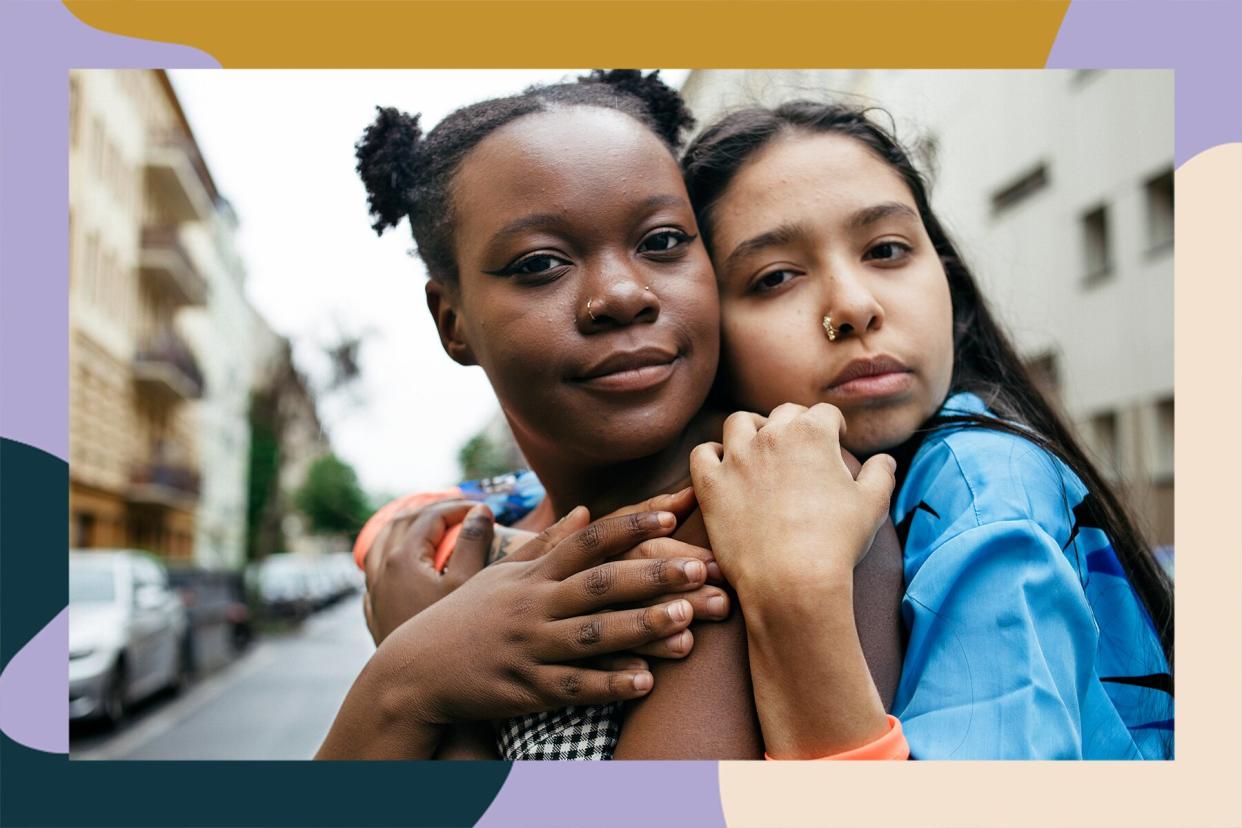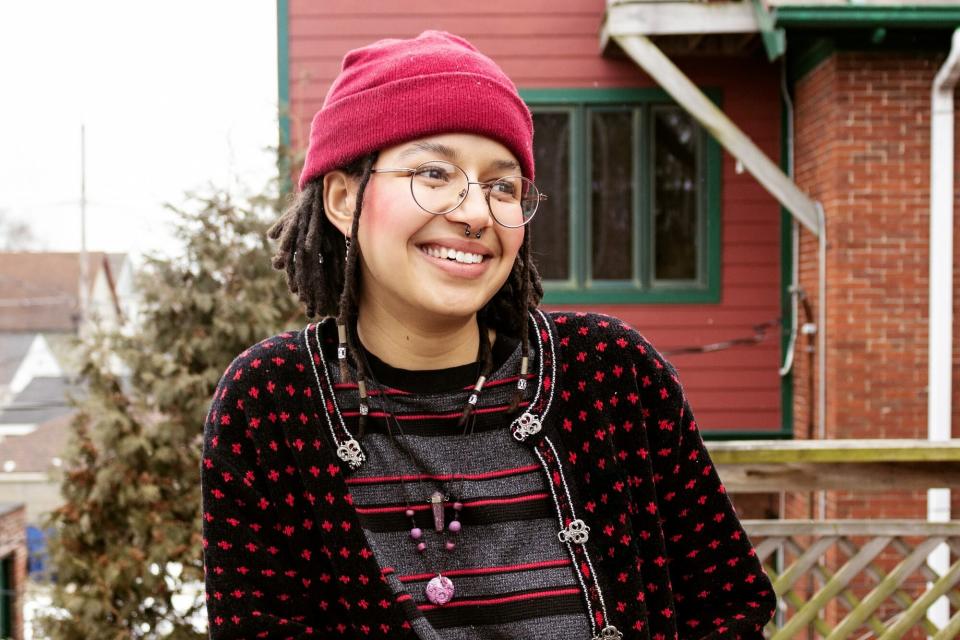Here's Everything You Need to Know About Being Agender

Getty Images
The "A" in the queer letter lineup is typically tied to asexuality but it also encapsulates a wide spectrum of other identities, including aromanticism and agender. According to the dictionary definition, agender applies to a person who has an "internal sense of being neither male nor female, nor some combination of male and female or being a person whose gender identity is genderless or neutral."
However, like many other queer identities, being agender is not as simple as picking out a dictionary summary. To get a more personal understanding of the term, Blü, who is agender nonbinary, describes it as: "a disconnect between the two physical male and female sexes. It in itself is a lack of gender. It is to have no identifiable gender."
Since studies on the breadth of our community are sparse, it is impossible to know exactly how many agender people are out there right now. But conservative estimates say there are approximately 1.2 million non-binary people living in the United States. With agender people vastly underrepresented in the media, the psychological benefits of finding a community to connect with are especially precious.

Getty Images
"The psychological yearning is to belong while retaining uniqueness," says Zayna Ratty, an LGBTQIA+ race and ethnicity GSRD hypno-psychotherapist. "Being able to have a lack of concealment, for some labels are vital for identity, it makes us believe we are part of something larger than just ourselves. It can feel like home, a place we can truly be ourselves, inside and out. We all desire to know who we are."
Like other identities under our rainbow banner, agender people can fall under nonbinary or genderqueer terminology, too. Both are umbrella terms referring to people neither exclusively male or female, who may identify as living in between or separately from both genders. The precise meaning of agender varies because, like all identities, it lives on a spectrum defined by the person claiming affinity with the terminology.
Ultimately, finding an identity that fits and feels empowering helps keep LGBTQ safe and alive, which we all know is crucial when rates of mental health, self-harm, and suicide are all disproportionately high. Community is even more crucial when remembering that queer people are also at increased risk of hate crime.
It takes time to figure out who we are and society needs to give agender people a safe world to do that work in. "I am still defining what it means for myself and that will be an ongoing process," adds McLawrence. "Through social media, I have been able to embrace that dual-energy within myself to express and create. I've found a better understanding of myself that allows me to see people differently and accept them for who they are and not who others want them to be."
Finding labels that connect with our inner self pulls people out of limbo and offers a sense of self that can be life-altering.
"Agender is the freedom to be yourself for those who find it difficult or temporarily can't claim that he is a woman or a man," says Angela, who identifies as agender or bigender depending on which term connects with her inner self most at the time. "I also like to think that God is also an agender, something between male and female."
Sadly, like countless other identities in our community, there are a lot of misconceptions about being agender, which can be alienating. Blü explains: "That agender people are confused about what they want to be, or that they hate themselves or their bodies. None of this is ever necessarily true. Being agender does not have to remain a taboo. It can very well be normalized, there just has to be an effort."
To welcome agender folks into the world, and allow them to come out without fear of repercussions, allies need to step up. Whether they are part of the LGBTQ+ world or not, allies play a key role in protecting marginalized groups. They should never speak over those who need listening to but should also accept the responsibility of elevating the voices of agender people.
Ratty adds: "Embrace, learn and celebrate the diversity that is our community, invite people into those conversations rather than calling them out. Have people's backs and remember that allyship added to action can be solidarity."
We are all individuals with our own perspective on the world, so understanding the life experience of another is always a challenge, no matter how empathetic you are. Whether or not you fully understand the lives of agender people is essentially irrelevant though. What matters is how you treat others, particularly those from marginalized communities. Agender people are a beautiful part of our rainbow world and deserve to be treated with the same respect, empathy, and kindness as any other person.


